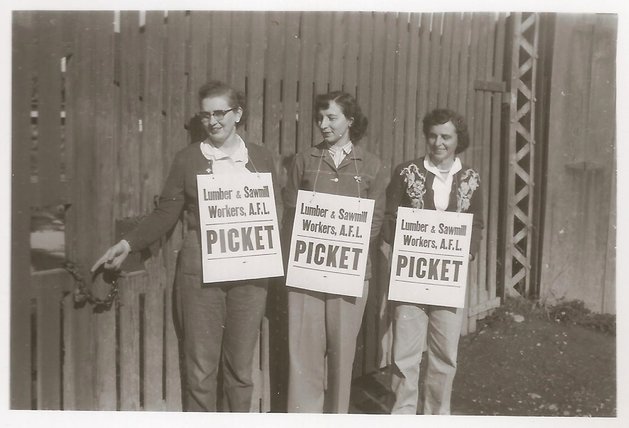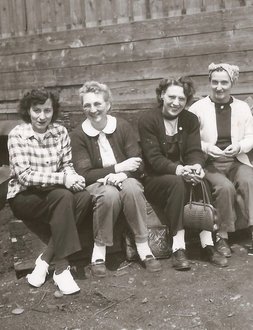There were many local events involving this strike with the loggers in Humboldt County. One of the biggest issues in this time was corporate greed and inequality. The workers wanted more pay and less work hours. They were working for +60 hours a week with an hourly pay of 35 cents an hour (about $21 dollars a week). The Communist Party, motivated by Popular Front policies, increasingly moved into popular labor organizations and, for the first time prompted the American Federation of labor to take seriously the cause of logger unions with the founding of the Sawmill and Timber Workers’ Union (STWU). A large strike wave in 1934 also helped set the stage for the timber workers strike and, in particular, the 1934 Pacific Coast longshoremen’s strike which had proven to many woodworkers that the economic issues created by the Depression could be corrected with mass action.
"Although little was ultimately gained by the dramatic strike, the STWU had won a tremendous moral victory. Forged in the heat of the battle with the police, strikebreakers and the National Guard, strikers saw the potential effectiveness of militant strikes and became more confident in their ability to negotiate with the employers on equal grounds. As Phil Weyerhaeuser of the Weyerhaeuser lumber company stated, 'I do not think we can refuse recognition of the union in some way in the future'. Organized labor had come to the lumber industry and the over the next few years, several more strikes and organizing efforts would slowly wear down the employers opposition to union recognition."
"Although little was ultimately gained by the dramatic strike, the STWU had won a tremendous moral victory. Forged in the heat of the battle with the police, strikebreakers and the National Guard, strikers saw the potential effectiveness of militant strikes and became more confident in their ability to negotiate with the employers on equal grounds. As Phil Weyerhaeuser of the Weyerhaeuser lumber company stated, 'I do not think we can refuse recognition of the union in some way in the future'. Organized labor had come to the lumber industry and the over the next few years, several more strikes and organizing efforts would slowly wear down the employers opposition to union recognition."
“There may be times when we are powerless to prevent injustice, but there must never be a time when we fail to protest.” -Elie Wiesel (Jewish writer, professor, political activist, Nobel Laureate and Holocaust survivor.)
Humboldt " A.F.L Picket Line" 1957, Humboldt County Historical Society
“Loggers were a superstitious group so there could be no camp 13” - M.D. Vaden (Californian Photographer)
(The Humboldt loggers had numbered camps but because they were superstitious, there was no camp 13)
(The Humboldt loggers had numbered camps but because they were superstitious, there was no camp 13)

